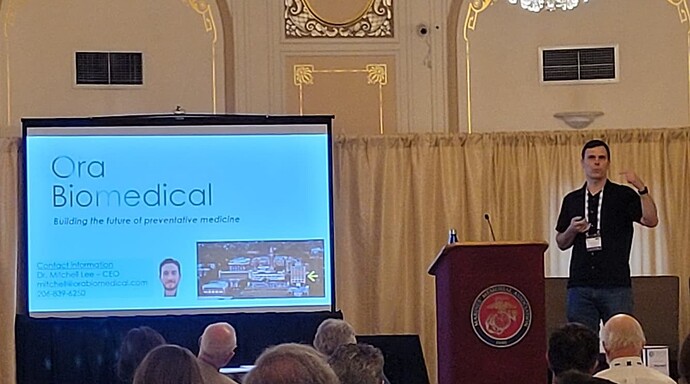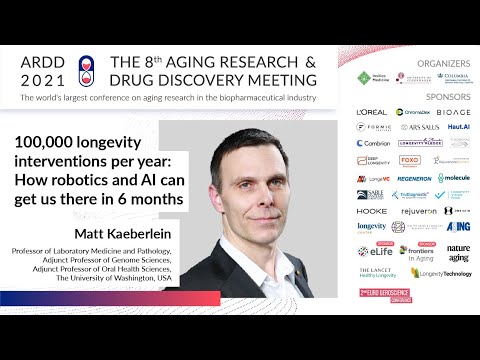Matt Kaeberlein is starting a new longevity biotech company with another University of Washington researcher Mitchell Lee (CEO), based on their work on high-throughput drug target screening using c. elegans (nematode worms that live 10 days), and artificial intelligence.
I think this new effort is based on the past work that Matt presented at last year’s ARDD meeting - see video below. This sounds like an approach that is very much needed right now, to greatly increase the number compounds evaluated for possible longevity benefits. This process seems that it could greatly speed the process of identifying candidate drugs and compounds (and combinations of compounds) that provide longevity benefits, and then ultimately to get the identified compounds to market faster.
Its likely that the company will patent the drug candidates and combinations that they identify in this process, and will then either out-license the compounds for commercialization by other companies, or continue on with the testing and clinical trial process towards commercialization themselves.
Mitchel Lee clarified in a tweet below that their focus is on combinations of compounds. And this clarification is important as it is truly a huge issue that they are addressing. As we’ve seen here in our own forums, everyone who is taking rapamycin (for example) is likely already taking, or very interested in taking, other compounds (supplements or drugs) for longevity. But the key problem we quickly run into is that we have little or no data on how these different compounds work together. So the testing of all different combinations of compounds is key for human translation.
Ora Biomedical is the only new company is the only one I’m aware of that is focusing on this huge issue. Its a very important addition to the field. See: The Challenge of Predicting Outcomes when Mixing Longevity Therapeutics - How are you thinking about this?
Ora Biomedical’s business plan sounds a little bit like that of the company “Longevica”, but will be screening many orders of magnitude more compounds, in a much shorter period of time, which sounds like a winning strategy. Ora Biomedical’s plan also sounds very similar to that of Gerostate Alpha, a spinout of the Buck Institute that also plans to use c. elegans for screening and identifying longevity compounds, but Gerostate Alpha seems to have raised only a small amount of funding, and its not clear to me how much time and effort the Buck Institute founders are actually putting into this effort. See Gerostate Alpha website. It seems increasingly like all the Buck Institute researchers have side gigs / longevity biotech companies that they do in addition to their “day jobs”. Doing a startup company as a part-time job is not typically a model that has a track record of success (at least in the technology startup world where I’m from), given the amount of work that a startup demands is typically orders of magnitude over that required in a typical job. But, I also know that in the academic / biotech / longevity research field spinout efforts like Gerostate Alpha are more common, as the academics typically don’t want to give up their tenured positions to join the risky startup, and instead they function more like scientific advisors to the new startup.
Mitchell Lee also comments:
@mkaeberlein introducing the longevity biotech community to Ora Biomedical, a new pharma company using massively high-throughput drug screening to identify the next generation of healthy aging therapeutics!!! Great talk Matt!" from Mitchell Lee tweet.
See video: 100,000 Longevity Interventions per year: How Robotics and AI can get us there in 6 months.

